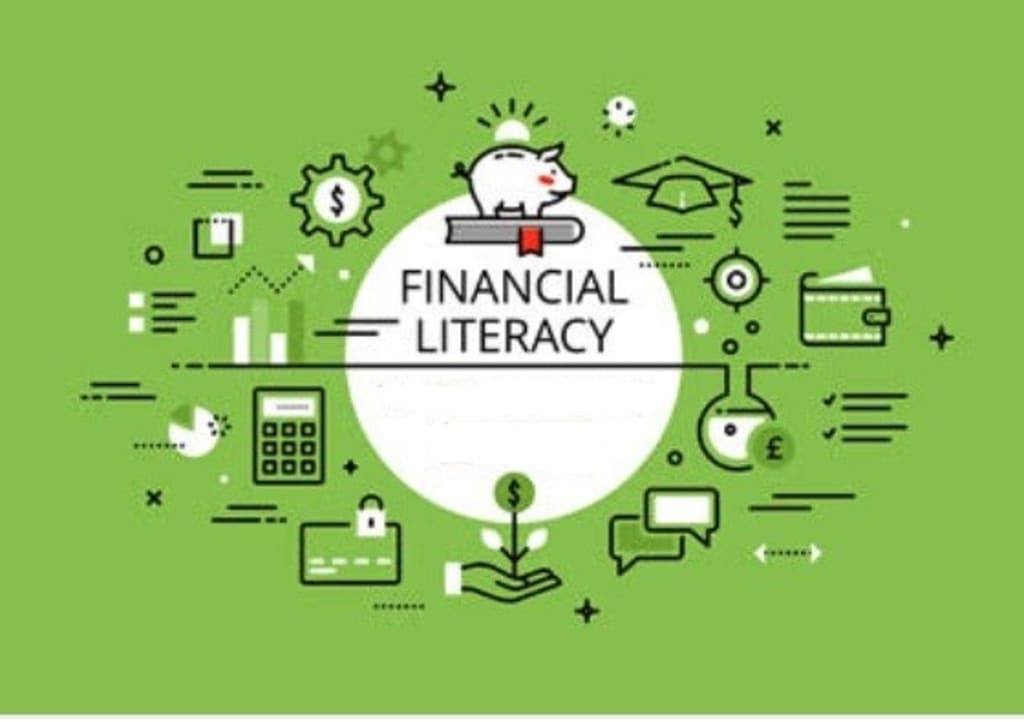Future Of Financial Literacy Programmes In India
Financial Literacy Prog

Financial literacy has been one of the main aims for most nations today, directly related to the country's economic growth. It isn't calming to note that India's rate of financial literacy is well behind other countries. According to a global survey, India is home to about 20% of the earth's population. However, 76% of the adult population is not even aware of simple financial terms. The study reveals that India's financial literacy has been low in importance relative to the rest of the world.
Indeed, it is high time for a developing nation like India to understand the value of financial literacy. A low financial literacy rate can prove to be a significant setback to India's aspiration to become an economic powerhouse in the coming years.
About us
The NIIT Foundation (NF) is a non-profit education society (NGO) founded by NIIT promoters in 2004. Its goal is to significantly affect the underprivileged of the world through educational programmes and skills development programmes. The NIIT Foundation, the Education NGO, has a mission to reach out to the unreached, uncareful, and unattended to ensure India's inclusive growth.
Vision
We would use our expertise and education to demonstrate a profound effect on every underserved neighbourhood we operate.
Our Goals
Be Consumer-Centric—Students and Employers—be the chosen alternative.
Meet every and every promise we make—lead by example.
Leverage Partnerships—be a forum for success for everyone, including workers.
Everyone to work with an Entrepreneur's mind-set—to be creative with everything we do.
Every one to appreciate risk-taking—to honour the people who stick their necks out—we know that pathbreakers walk mysterious roads.
Actively create Alumni Network—not it's only a one-time drive, but a lifetime friend.
About the programme
The Financial Literacy Programme focuses on the ability to handle personal finance effectively. It is a core life skill that is essential for the individual's personal and professional advancement. It is critical because it allows one to take care of ourselves and prevents debt situations. E-transaction is becoming a way of life. Financial inclusion is essential and only feasible if people are financially literate.
The NIIT Foundation acknowledges the need for financial inclusion and has collaborated with key business partners to establish a viable financial literacy training programme in India's semi-urban and rural parts.
Before creating and introducing this training, the NIIT Foundation conducted a pilot study in collaboration with a business client. Our Institute performed the pilot research at three sites, namely Pune in Maharashtra, Udaipur in Rajasthan and Delhi.
This research intends to explain the need for such a financial literacy training programme and its aspirations on this subject. This study found a huge demand for financial training, especially in urban slums and rural India. The pilot study showed that most people were either semi-financially literate or not financially conscious of it.
Based on these results, a financial literacy training curriculum is made. Our faculty built the content found on the need that originated from the populations during the pilot study. The creation and execution of the Financial Literacy Curriculum developed during deployment has progressed on a ground-based basis.
Training is a 10-hour financial literacy programme. It has rich animated content and video-based distribution that can be accessed on your tablet, desktop, etc. The target demographic covers a wide variety of students from 14 to 17 years of age who are trained to join the workforce and 18 years of age and over adults who need financial literacy instruction.
The approach
- Community Participation Model: Chosen individuals are trained in the programme as Master Trainers who further educate their community members through app-based or video-based training.
- Education for organisations and job-Training is also offered to staff employed in businesses, associations like nurses and assistants in hospitals, SHG representatives and entry-level employees. Training is based on an interface or video that provides both written and online tests, depending on the learners' background.
This financial literacy curriculum is intended to allow learners to understand the "basics" of financial management that encourages them to use technology in meaningful ways to their everyday lives.
In this programme, learners learn the fundamentals of banking and savings, mobile accounts and e-wallets, cautious spending, retirement, insurance risk control and financial preparation. The individual also learns the skills needed for day-to-day economic activities, such as writing a financial report, using e-wallets, online banking, and online insurance.
This initiative's overarching goal is to inspire and influence people through financial literacy and promote development and equity across India.
For more information, visit our official page and know about many more programmes.
About the Creator
Vishal Kumar
Hey I am Vishal Kumar from Delhi, India.






Comments
There are no comments for this story
Be the first to respond and start the conversation.